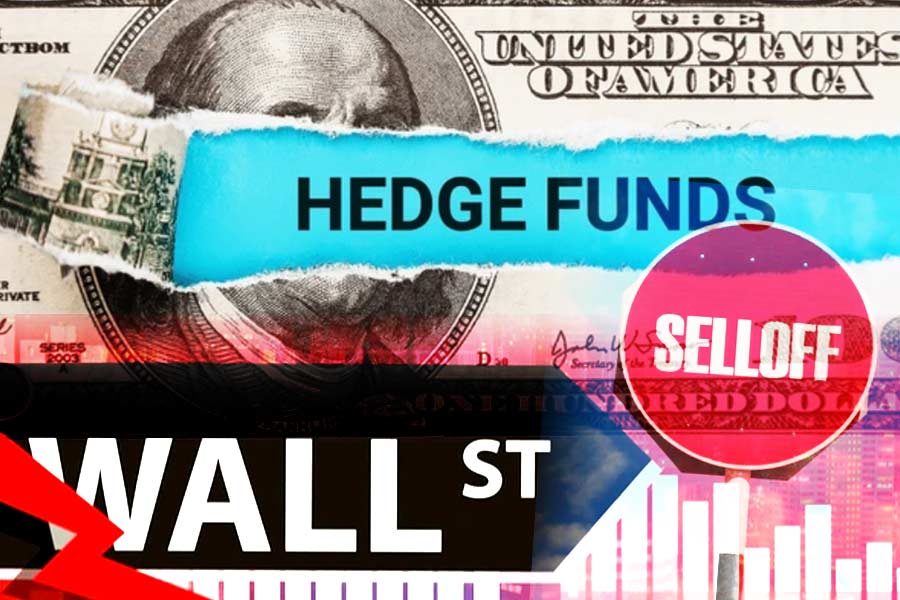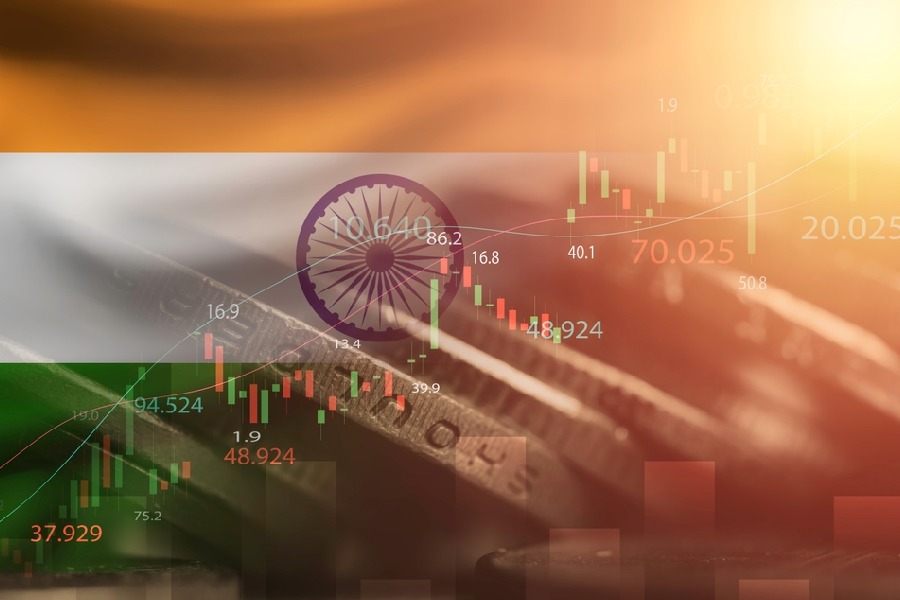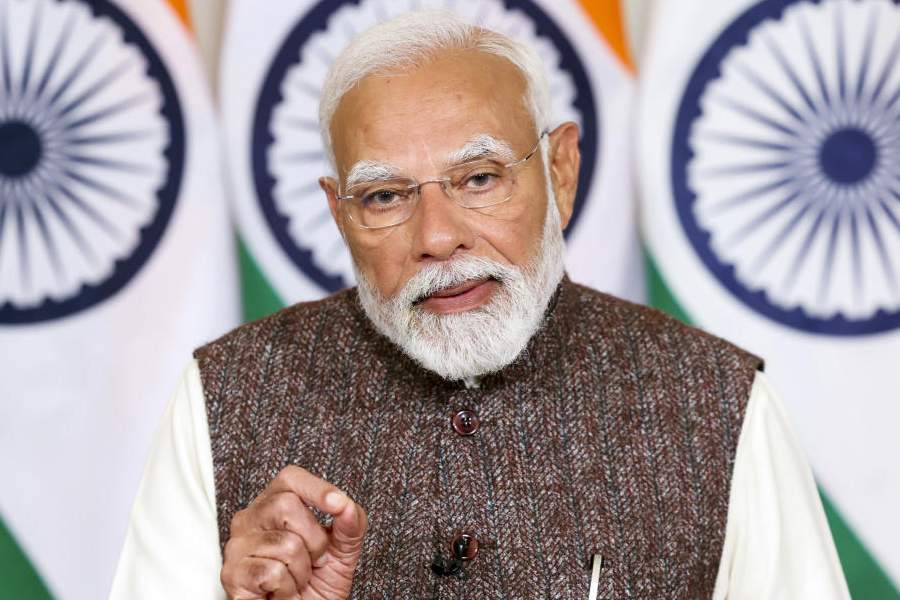US hedge funds have been betting billions of dollars against Donald Trump’s Make America Great Again agenda amid fears of a stock market crash. Goldman Sachs reports a surge in “short” bets against US stocks, meaning traders would make profits when shares fall.
Why should we in India worry?
Well, when the biggest hedge funds start placing billion-dollar bets on a US market downturn, millions of everyday investors in India can’t ignore the signal — especially as it coincides with a strong warning by the latest Economic Survey that if the US stock market stumbles, India could feel the shock waves.
As the survey puts it, the effects on investor sentiment and spending in India could be “non-trivial.” This isn’t just speculation — history backs it up.
Looking at data from 2000 to 2024, the survey noted that in 22 instances where the S&P 500 fell by more than 10 per cent, India’s Nifty 50 declined 21 times, with an average drop of 10.7 per cent.
The survey warns that a significant market correction in the US could lead to a "meaningful market correction" in India with potential “cascading effects.”
The survey says that the impact could be amplified due to the increased involvement of young, relatively new retail investors in Indian stock markets.
One of the most striking trends in India’s stock market rally has been the unprecedented participation of retail investors. Over 100 million new demat accounts have been opened in the past three years. It’s one reason India’s market has stayed resilient — the rise of everyday investors.
Over the past five years, individuals have pumped Rs 4.4 lakh crore into Indian stocks. Even in October 2024, when foreign investors pulled out a staggering $11 billion, the Nifty 50 only slipped 6.2 per cent, showing how strong domestic investors have become in cushioning the impact of foreign investor sell-offs. Domestic investors have funnelled in around $27 billion into Indian equities since October, Manulife figures show.
But here’s the flip side — many of these new investors have only seen bull markets and have never experienced a serious market crash. The survey warns: “Many of these investors entered the market post-pandemic.” They have “never witnessed a significant and prolonged market correction.”
If a major downturn does come, it could hit these investors hard, as when markets fall, panic selling can quickly amplify losses.
In other words, if the US market takes a hit in 2025, Indian investor confidence could be shaken, leading to reduced spending and a potential market downturn.
Several red flags for Indian investors
The Economic Survey has raised several red flags for Indian investors. The US stock market valuations have reached their third-highest level ever, raising concerns that a correction could be around the corner.
The Economic Survey points out that the US market has now entered what it calls an "unattractive zone," with valuations at their third-highest levels in history.
“Elevated valuations and optimistic market sentiments in the US raise the likelihood of a meaningful market correction in 2025.” It warns that “history shows sentiment-driven rallies are often fragile, with confidence shifting rapidly in response to external shocks.”
Ruchir Sharma, chairman, Rockefeller International, tags US stock market valuations as “the mother of all bubbles.” Sharma, who served as chief global strategist at Goldman Sachs, said in a column: “All the classic signs of extreme prices, valuations and sentiment suggest the end is near.”
Also, in another negative for stock markets, US rate cut expectations are cooling — the US Federal Reserve initially signaled a one percentage point cut in 2025, but now only a half-percentage point reduction is expected.
Despite the resilience shown by the Indian market thanks to growing local participation, the risks associated with a potential US market correction “remain significant,” the Economic Survey says.
Indian equities have been on a downturn since September as foreign investors have dumped shares, worried about the country’s slowing economy. Foreign portfolio investor flows into Indian equities nosedived by 99 percent in 2024 from the previous year to just $124 million, in the face of increasingly anaemic economic growth prospects, according to official data.
The outflows have increased sharply in recent weeks, with foreign investors dumping the “India Story,” withdrawing about $8.3 billion from Indian equities as of January 28.
There has been a shift out of India and emerging market stocks into US equities and safe-haven Treasury bonds.
“Foreigners have been largely absent from the India story in the past year,” James Thom, senior investment director at Abrdn, a global investment company, told CNBC.
The government forecasts growth of 6.4 percent for this financial year, the lowest in four years, and projects little change next year.
The two benchmark indices, the Nifty 50 and Sensex, are trading at more than seven-month lows, with real estate, energy, and auto shares showing the biggest losses.
While India’s stock market has become more resilient, its close ties to the US market remain a double-edged sword. As the Economic Survey warns, “With the US comprising 75 per cent of the MSCI World Index as of November 2024, any correction in its market could have profound ripple effects on global markets, including India, underscoring the need for heightened vigilance.”
The MSCI World Index is a stock market index that represents large and mid-sized companies from developed countries. Since the US makes up three-quarters of the index, its stock market heavily influences global markets.
The quadrupling of domestic equity investors in India between 2020 and 2024 has led to a “mini-bubble,” which has been deflating since September, Praveen Jagwani, CEO of asset management company UTI International, told CNBC.
“The onslaught of tens of millions of retail investors into stocks with questionable fundamentals has driven up valuations in India,” added Jagwani. He believes “a healthy pullback” is needed.
What should Indian investors do?
So what should Indian investors do with all these warning signs flashing? Diversify: Investors who are overly exposed to high-risk stocks should look at a more balanced portfolio with a mix of high-quality assets, including bonds and gold.
And don’t panic: Market corrections are normal. Long-term investors who stay patient and avoid panic selling tend to fare better over time, analysts say.













